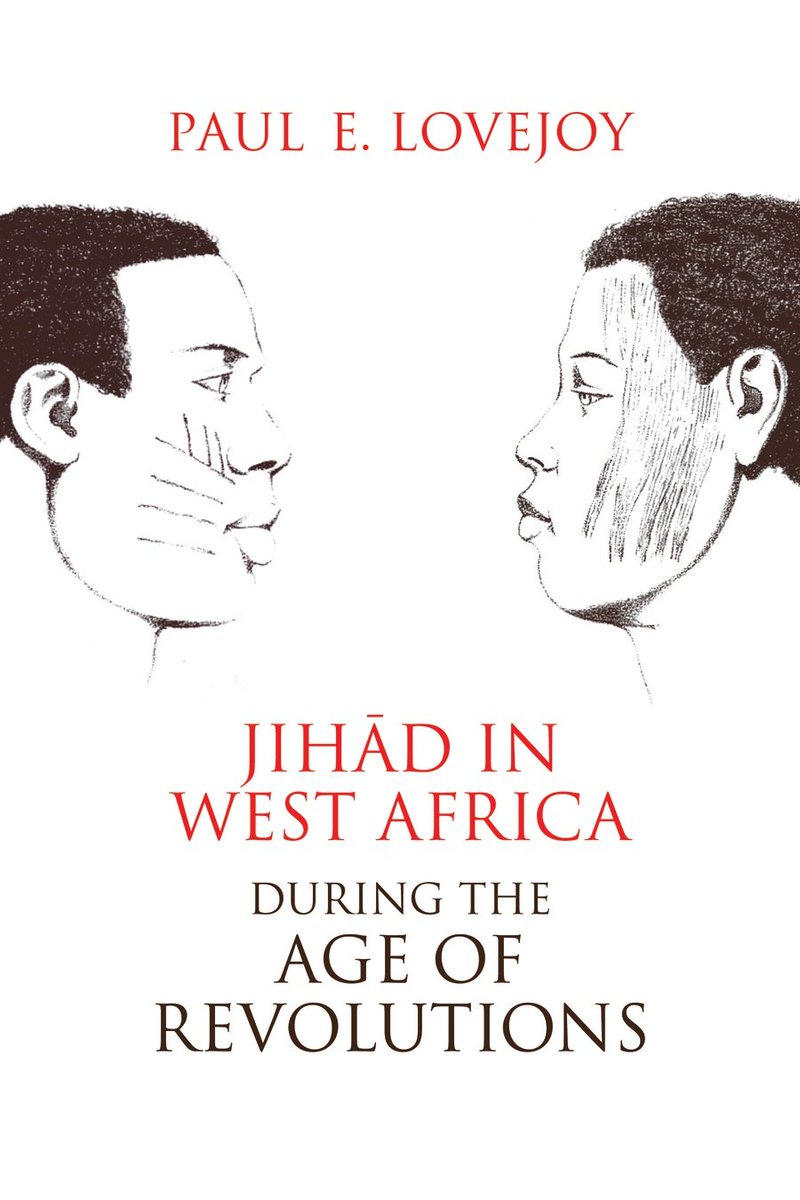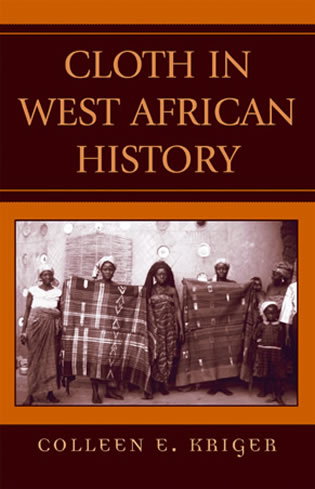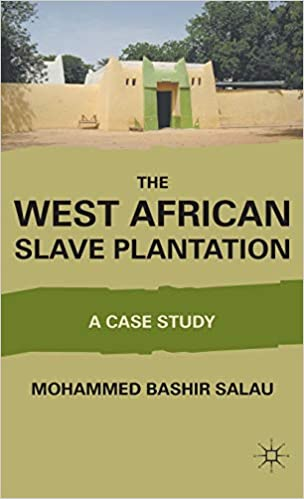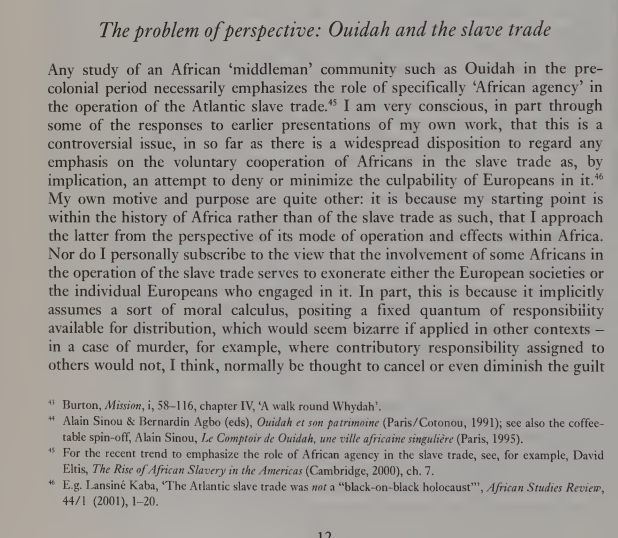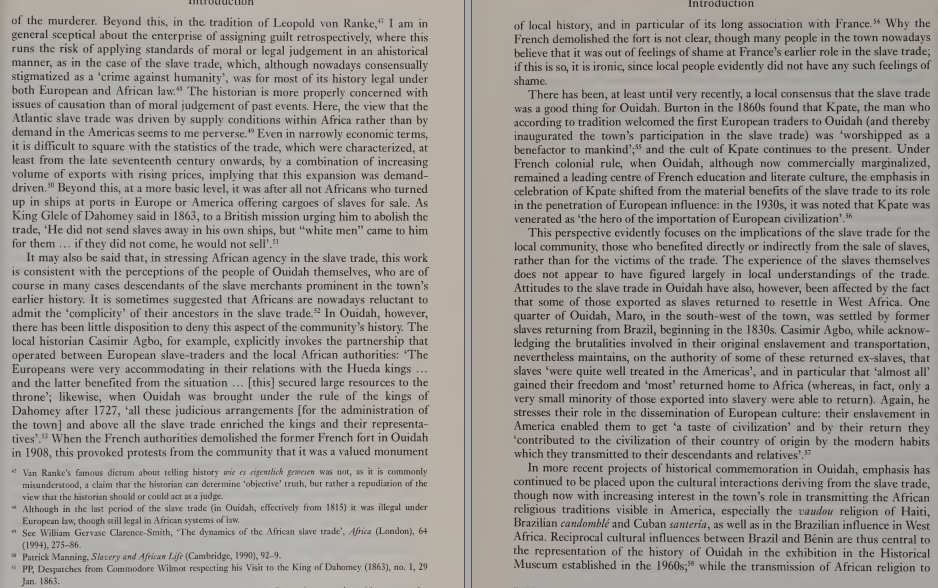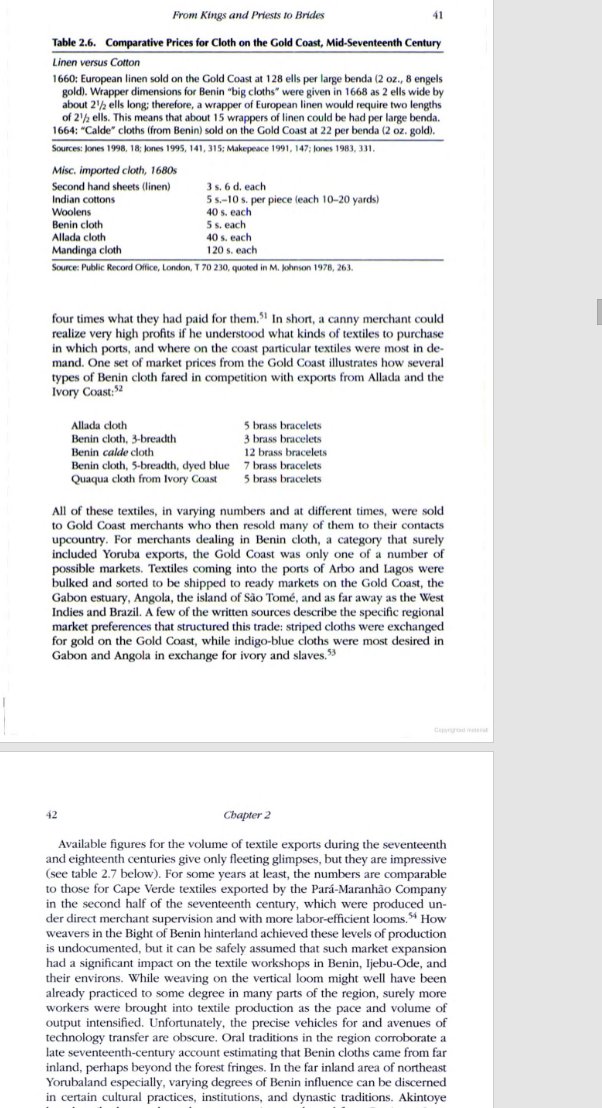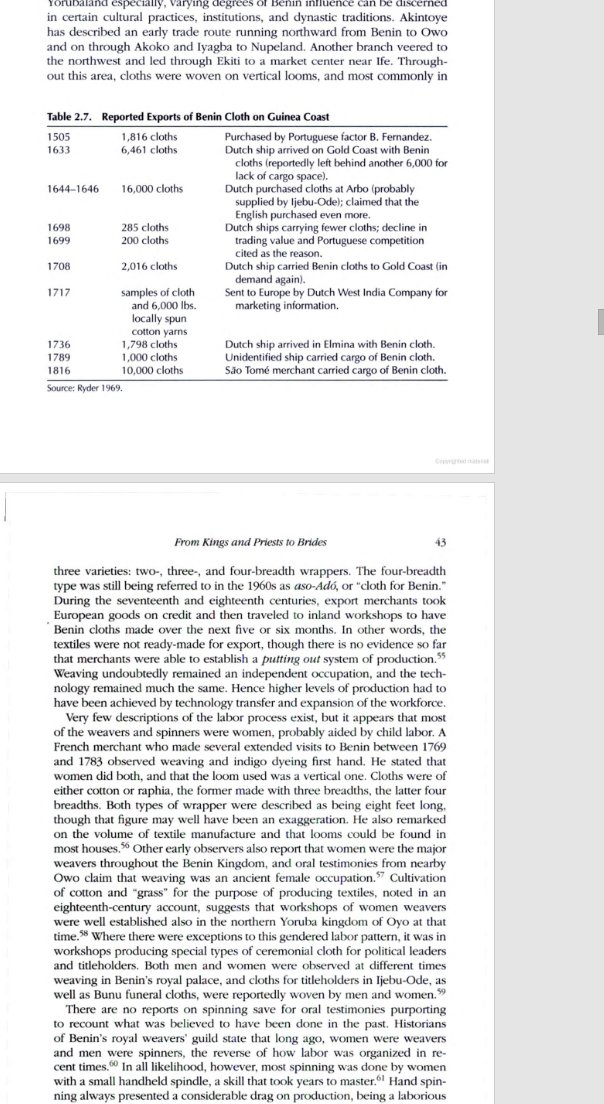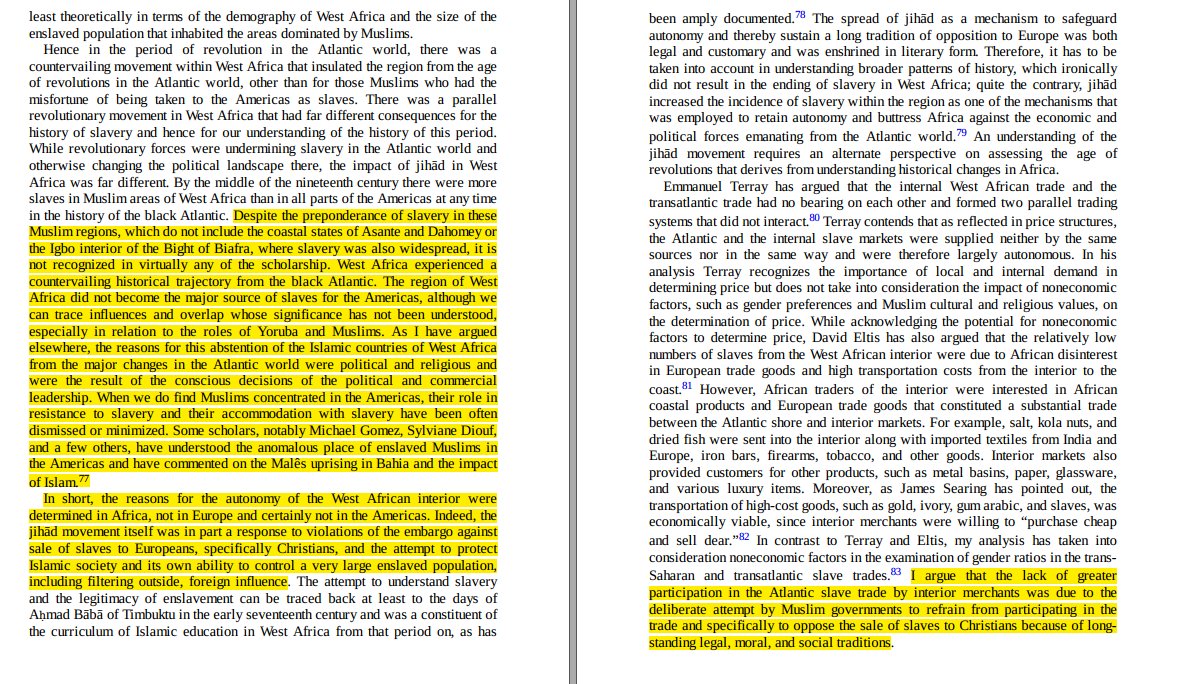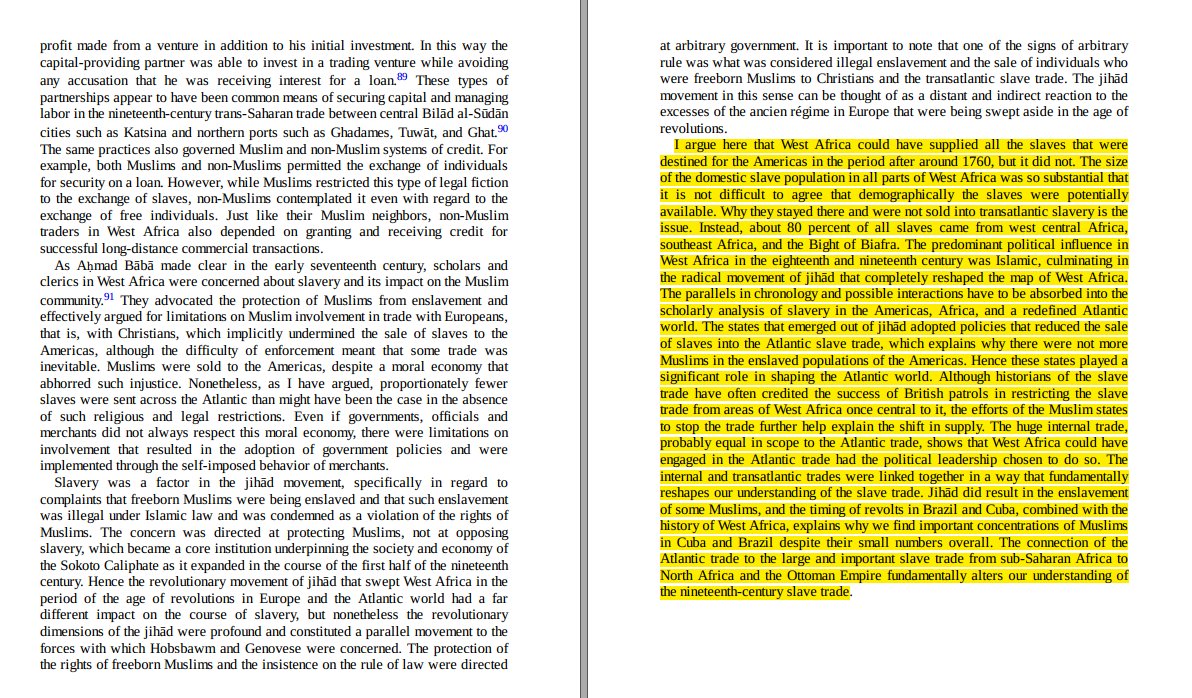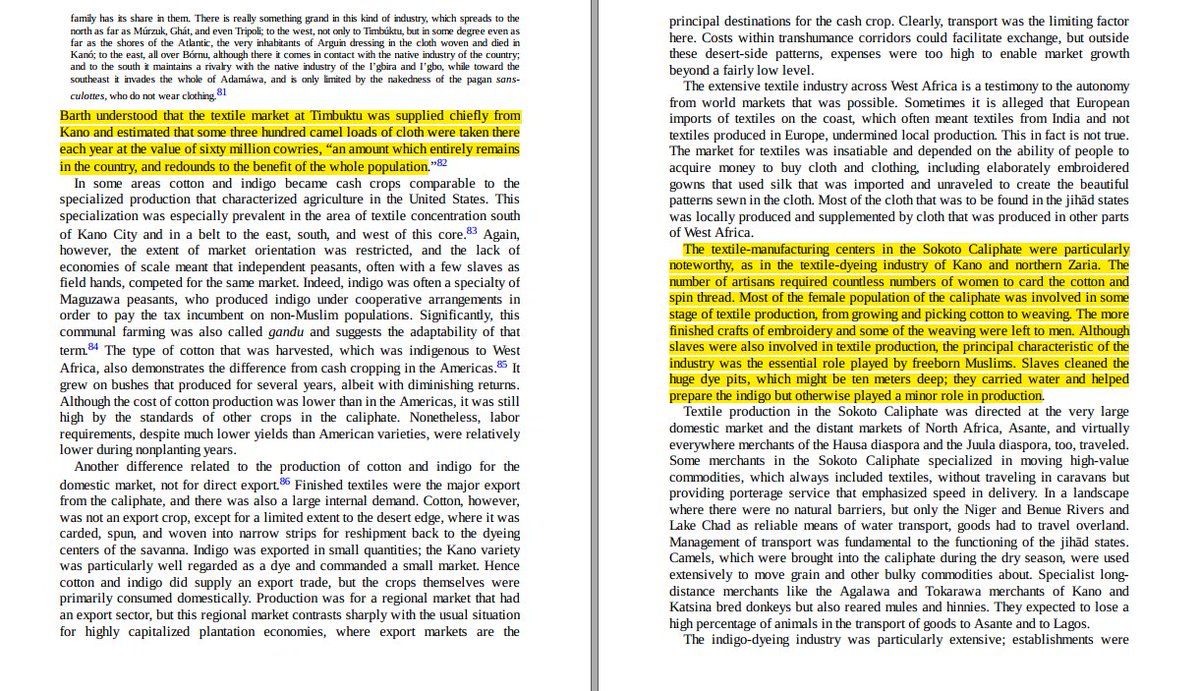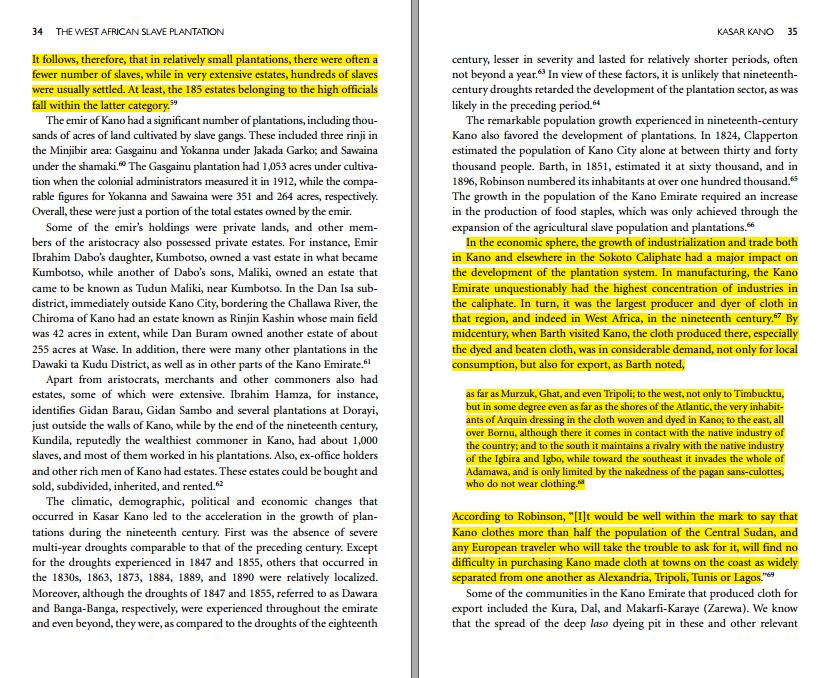#Triviaxt
Thread on economic dynamics of slave trade: why most west african states exported enslaved ppl and why some states didn& #39;t export them despite the overwhelming economic incentives (by extension political incentives) to do so
screeshots used are taken from these 4 books
Thread on economic dynamics of slave trade: why most west african states exported enslaved ppl and why some states didn& #39;t export them despite the overwhelming economic incentives (by extension political incentives) to do so
screeshots used are taken from these 4 books
initially, there was no "stock" of slaves in africa, waiting for European buyers. Instead, the expansion of the trade was b& #39;se there was a price differential between retaining slaves locally vs exporting them in which the latter& #39;s high price rationalized slave exportation
for the majority of (coastal) african states that did export slaves the question of complicity and agency is best answered in Robin law& #39;s introduction to ouidah -which was west africa& #39;s biggest slave "port"
on the rationale during the trade and ultimately the legacy of the trade
on the rationale during the trade and ultimately the legacy of the trade
as for the african states that didn& #39;t:
Benin banned slave exportation in 1516 partly to retain them for its labor intensive textiles production (benin cloths)
the ban was effected by jacking up prices (making slaves in benin more expensive than the Europeans could pay for them)
Benin banned slave exportation in 1516 partly to retain them for its labor intensive textiles production (benin cloths)
the ban was effected by jacking up prices (making slaves in benin more expensive than the Europeans could pay for them)
While most labor in textiles was free and most production subsistence the Benin textiles exported to other African states were from a royal monopoly worked by both women and men most likely enslaved
benin cloths were rexported along the coast and across the Atlantic til the 1700s
benin cloths were rexported along the coast and across the Atlantic til the 1700s
second to benin were the latter islamic revolution states of the 18th/19th cent. which withdrew from atlantic trade b& #39;se of religious reasons despite price incentives to export and despite expansion in domestic slavery that could have supplied all the Atlantic demand
this export "ban" in islamic west africa, like in benin, was sustained by expansion of labor intensive textiles production
while most of the work was done by free & family labor (dyeing, embroiling and weaving), the planting (cotton and indigo) was done by increased no. of slaves
while most of the work was done by free & family labor (dyeing, embroiling and weaving), the planting (cotton and indigo) was done by increased no. of slaves
the question of "relative treatment" of enslaved ppl in the Americas vs in Africa is a thread for another day
contrasting slave mortality,no. of violent slave uprisings, "positive" or "negative" management methods, level of social & political mobility (roles slaves served in) etc
contrasting slave mortality,no. of violent slave uprisings, "positive" or "negative" management methods, level of social & political mobility (roles slaves served in) etc
virtually all african states had laws banning enslavement of their own citizens and export of domestic slaves
these served both to protect the former and guarded prices from undercutting by "petty" traders since 50-80% (in dahomey, asante, oyo, etc) were sold by royal monopoly
these served both to protect the former and guarded prices from undercutting by "petty" traders since 50-80% (in dahomey, asante, oyo, etc) were sold by royal monopoly
sources list
screenshot 1: An economic history of West Africa by A. G. Hopkins pg 152-153
screenshot 2 and 3: Ouidah: The Social History of a West African Slaving Port, 1727–1892 by Robin law pg 12-14
screenshot 1: An economic history of West Africa by A. G. Hopkins pg 152-153
screenshot 2 and 3: Ouidah: The Social History of a West African Slaving Port, 1727–1892 by Robin law pg 12-14
screenshot 4: A Critique of the Contributions of Old Benin Empire to the
Trans-Atlantic Slave Trade
by Ebiuwa Aisien, Felix O.U. Oriakhi
screenshots 5-7: Cloth in West African History
By Colleen E. Kriger, Colleen E.. Kriger pgs 39-4
Trans-Atlantic Slave Trade
by Ebiuwa Aisien, Felix O.U. Oriakhi
screenshots 5-7: Cloth in West African History
By Colleen E. Kriger, Colleen E.. Kriger pgs 39-4
screenshots 8-9: Jihād in West Africa During the Age of Revolutions by Paul Lovejoy pgs 175-176
screenshots 10-11: (same book above) pgs 130-132
screenshots 12-14: The West African Slave Plantation: A Case Study by Mohammed Bashir Salau pgs 33-35
screenshots 10-11: (same book above) pgs 130-132
screenshots 12-14: The West African Slave Plantation: A Case Study by Mohammed Bashir Salau pgs 33-35

 Read on Twitter
Read on Twitter
